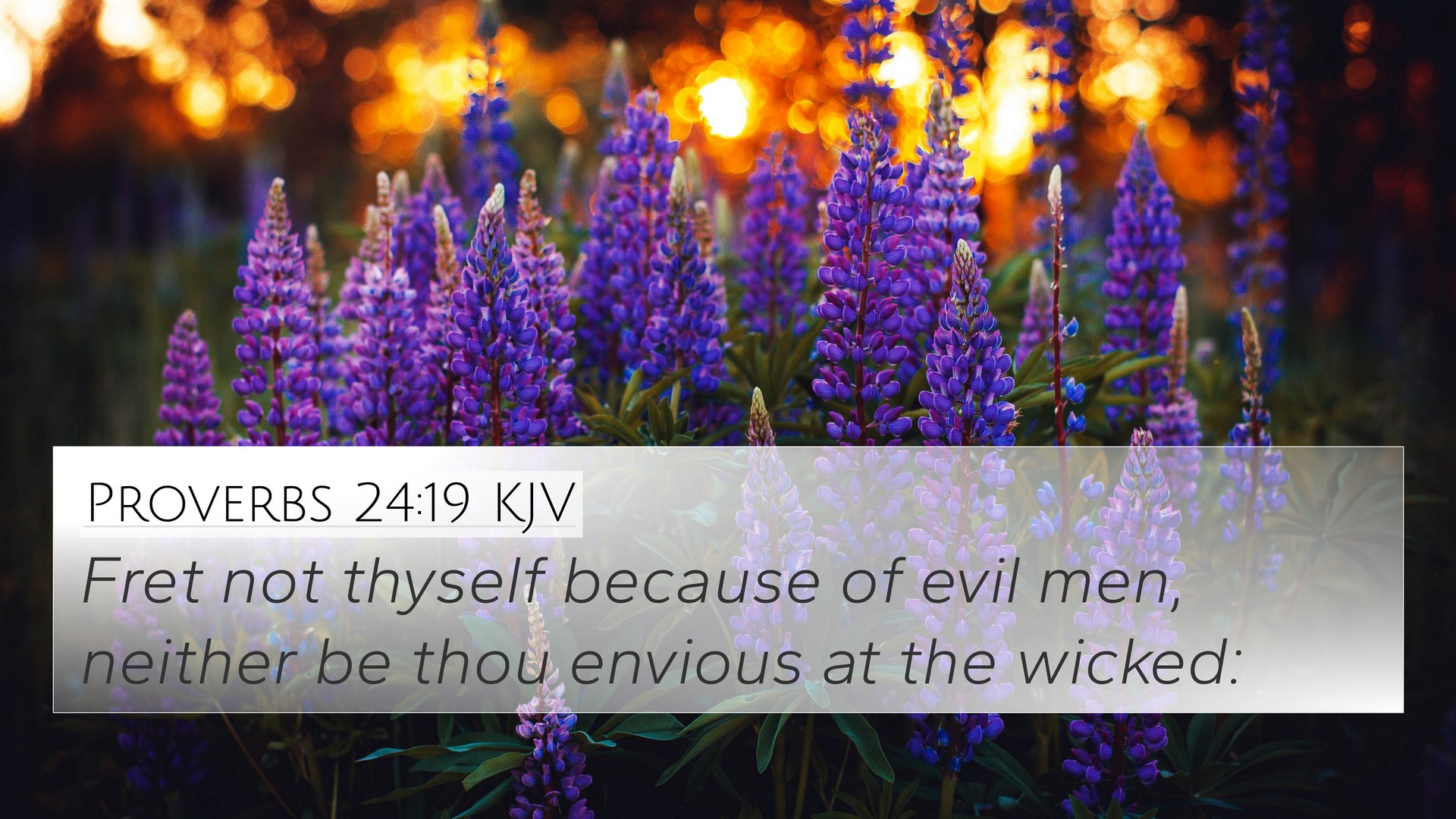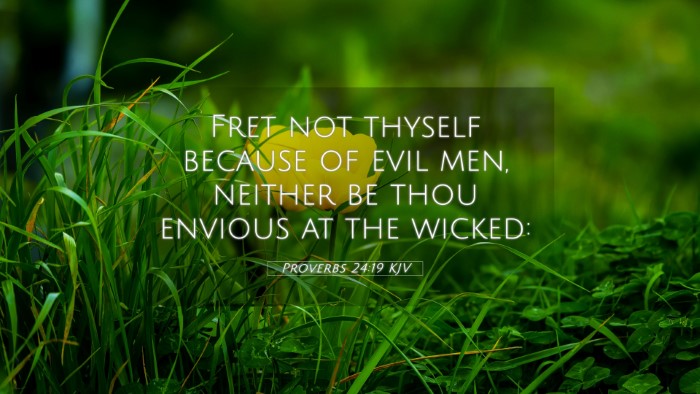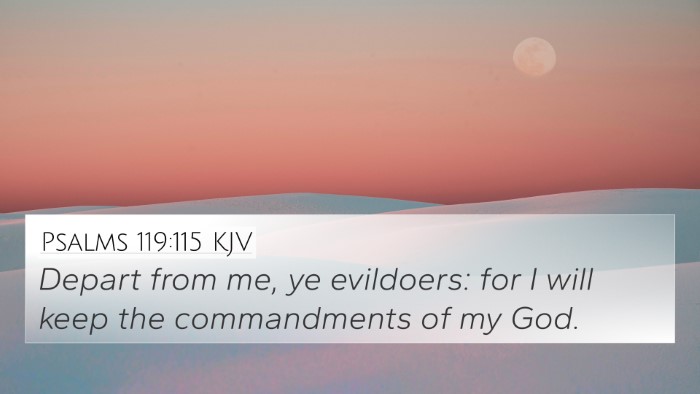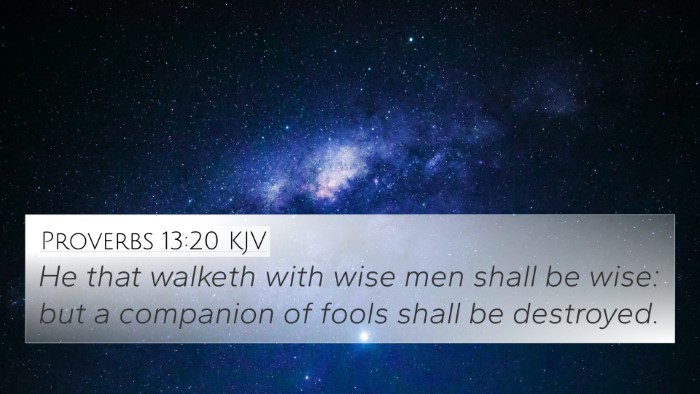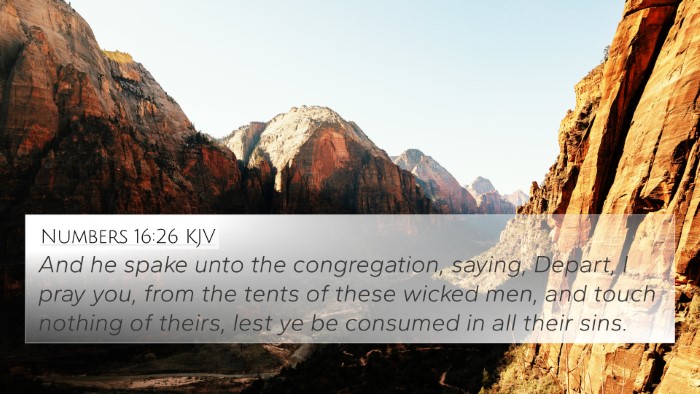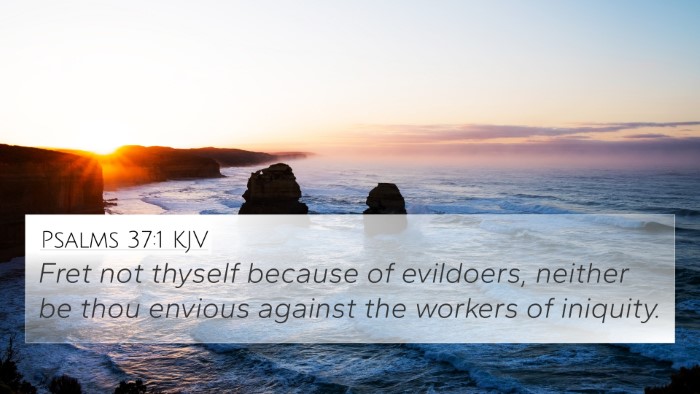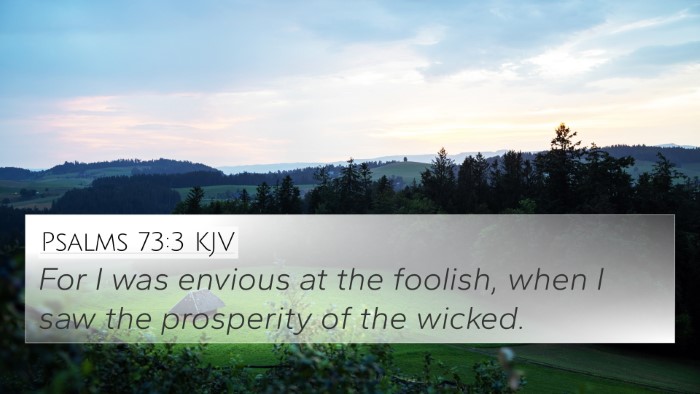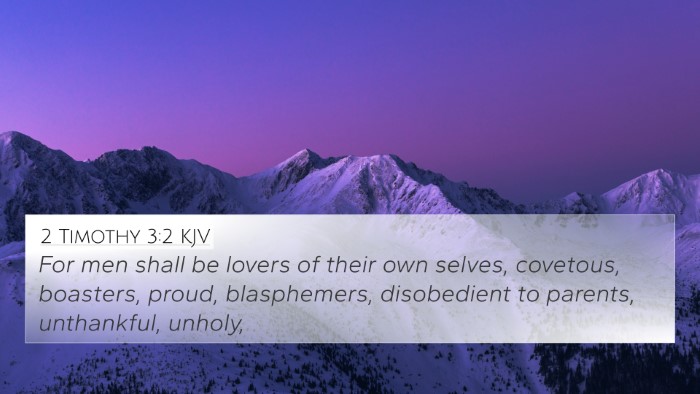Understanding Proverbs 24:19
Proverbs 24:19: "Fret not thyself because of evil men, neither be thou envious at the wicked."
Summary of Meaning
This verse serves as a wise admonition against the anxiety and jealousy that can arise when observing the success and prosperity of those who engage in wickedness. The core message is one of reassurance, urging believers to maintain their focus on righteousness and not to be swayed by the apparent advantages of evil individuals.
Commentary Insights
-
Matthew Henry:
Henry emphasizes that the "fret not thyself" admonition is a call to inner peace. He points out that those who seem to prosper despite their unrighteous actions offer a false standard of success that believers should not aspire to. Instead, he encourages reliance on God for true contentment and success.
-
Albert Barnes:
Barnes highlights the detrimental effects of envy, suggesting that it can lead to despair and a loss of moral clarity. He points out that the seeming prosperity of the wicked is temporary and that God's justice ultimately prevails. This perspective encourages patience and faith in divine timing.
-
Adam Clarke:
Clarke interprets the verse as a reminder that the prosperity of the wicked is no cause for concern for the righteous. He suggests that the promise of ultimate justice and reward for the righteous should diminish any feelings of envy. Clarke notes that such feelings only serve to distract from one's own spiritual journey.
Bible Verse Cross-References
This verse can be connected to several others that amplify its message about the perception of evil and the faithful's response:
- Psalm 37:1-2: "Fret not yourself because of evildoers, neither be thou envious against the workers of iniquity."
- Psalm 73:3: "For I was envious at the foolish, when I saw the prosperity of the wicked."
- Proverbs 24:1: "Be not thou envious against evil men, neither desire to be with them."
- Romans 12:19: "Dearly beloved, avenge not yourselves, but rather give place unto wrath: for it is written, Vengeance is mine; I will repay, saith the Lord."
- Ecclesiastes 7:15: "All things have I seen in the days of my vanity: there is a just man that perisheth in his righteousness, and there is a wicked man that prolongeth his life in his wickedness."
- James 5:7: "Be patient therefore, brethren, unto the coming of the Lord. Behold, the husbandman waiteth for the precious fruit of the earth, and hath long patience for it."
- Galatians 6:9: "And let us not be weary in well doing: for in due season we shall reap, if we faint not."
Themes and Connections Between Bible Verses
The overarching theme of Proverbs 24:19 connects with various others throughout the Bible, outlining the importance of maintaining faith in God's ultimate justice over the fleeting success of wickedness:
- Endurance in Righteousness: The recurring encouragement in verses like Galatians 6:9 reflects the need to be steadfast and patient.
- Distrust of Temporal Success: Themes in Ecclesiastes 7:15 echo that the apparent well-being of the unjust does not equate with true success or righteousness.
- Justice and Divine Retribution: Verses like Romans 12:19 assure believers that God's justice will prevail, encouraging them to refrain from personal vengeance.
- Divine Perspective on Wealth: In James 5:7, the importance of waiting for God's timing is mirrored, reinforcing that earthly evaluations of success can be misleading.
Conclusion
Proverbs 24:19 encourages believers to resist the temptation to envy the ways of the wicked, reassuring them of God's justice and the ultimate triumph of righteousness. By engaging with interconnected verses, one can gain deeper insights into the consistent biblical themes promoting patience, faith, and reliance on divine justice.
